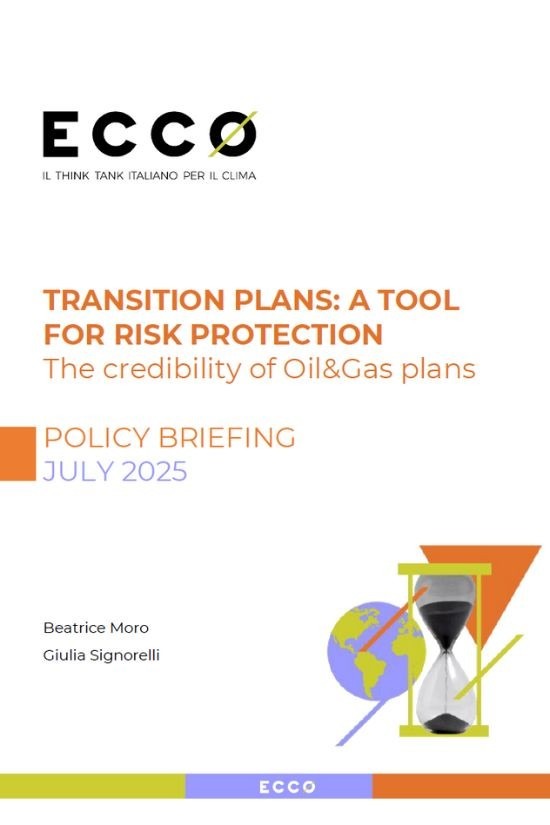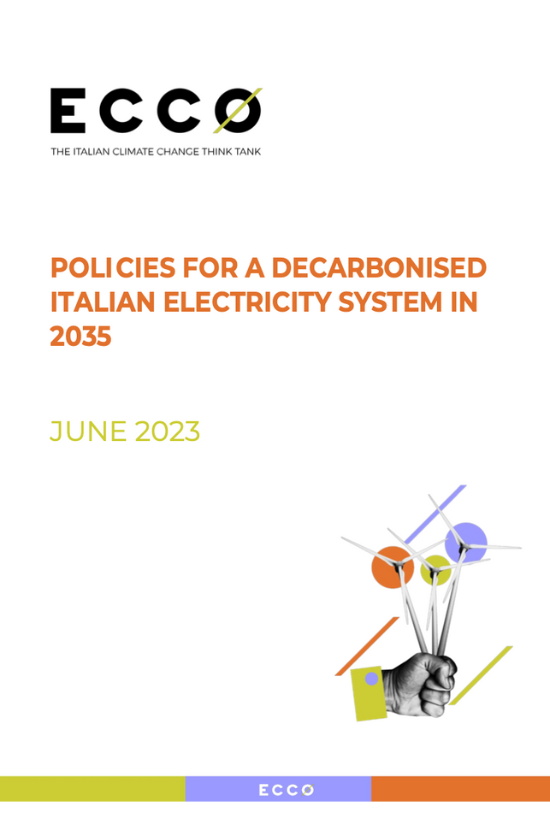Publications
Search
Filters
Authors
/ Alexandra Scott
/ Andrea Ghianda
/ Annalisa Perteghella
/ Beatrice Moro
/ Carolina Bedocchi
/ Caterina Molinari
/ Chiara Di Mambro
/ Chiara Mariotti
/ Chloe Pagliaro
/ Costanza Scano
/ Davide Panzeri
/ ECCO think thank
/ Eleonora Cogo
/ Federico Tassan-Viol
/ Filomena Annunziata
/ Francesca Andreolli
/ Francesca Bellisai
/ Gabriele Cassetti
/ Giovanni D'Amico
/ Giulia Colafrancesco
/ Giulia Giordano
/ Giulia Novati
/ Giulia Signorelli
/ Ilaria Mazzocco
/ Lorena Stella Martini
/ Luca Bergamaschi
/ Luca Iacoboni
/ Mario Noera
/ Marta Lovisolo
/ Massimiliano Bienati
/ Matteo Leonardi
/ Matteo Viola
/ Michele Governatori
/ Nicolas Drago
The Transition Plans published by Italy’s leading oil and gas companies exhibit significant shortcomings, particularly in the quantitative analysis of risks, the planned reduction in hydrocarbon production, and transparency around geographic and regulatory dependencies. For these plans to be credible, they must go beyond simple reporting, incorporating rigorous analysis and a clear governance strategy that reduces uncertainty and decisively channels investment toward truly sustainable solutions.
The project aims to show the production technology, enabling technology and enabling policies required to comply with Italian energy regulations that an essentially decarbonised electricity system in 2035 will need to have in place in 2030 and 2035. The system will be the most economical of all those guaranteeing decarbonisation and security while complying with certain hypotheses.
The Transition Plans published by Italy’s leading oil and gas companies exhibit significant shortcomings, particularly in the quantitative analysis of risks, the planned reduction in hydrocarbon production, and transparency around geographic and regulatory dependencies. For these plans to be credible, they must go beyond simple reporting, incorporating rigorous analysis and a clear governance strategy that reduces uncertainty and decisively channels investment toward truly sustainable solutions.
The project aims to show the production technology, enabling technology and enabling policies required to comply with Italian energy regulations that an essentially decarbonised electricity system in 2035 will need to have in place in 2030 and 2035. The system will be the most economical of all those guaranteeing decarbonisation and security while complying with certain hypotheses.

